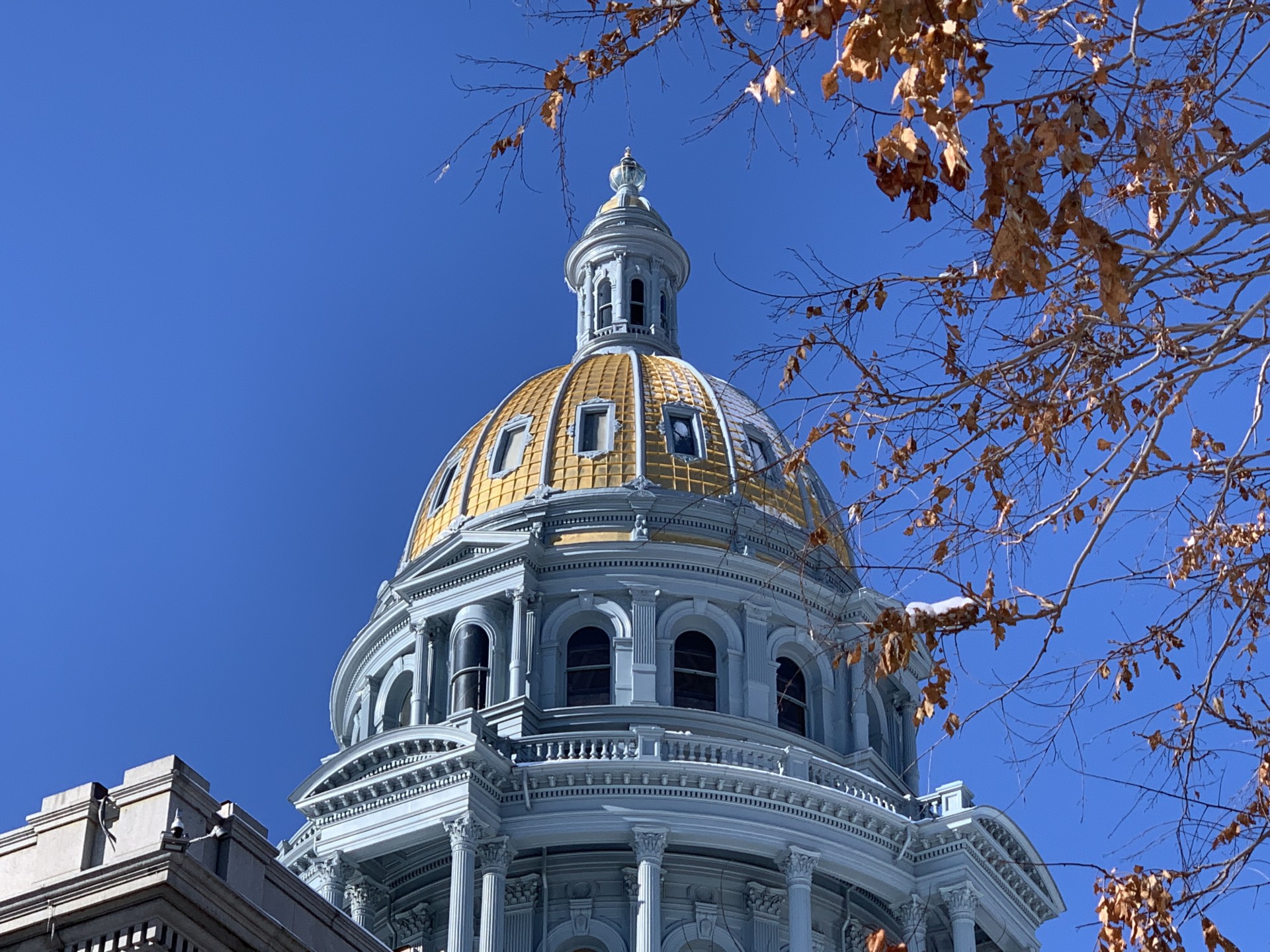
Colorado’s State Capitol is home to a unique internship program offered through the Straayer Center for Public Service Leadership. Photo by Jen Smith/CSU System
All politics is local, as the saying goes. Colorado State University undergraduates get a chance to see the inner workings of state legislative politics through semester-long internships at the Capitol in Denver, and the experience can be literally life-changing.
Now offered through the Straayer Center for Public Service Leadership, the Capitol internships have been part of the Department of Political Science for four decades. Professor John Straayer shaped the Legislative Politics practicum into a unique way to bring classroom theory to life for juniors and seniors from any major, shepherding more than 1,000 students through the program over his 37 years teaching the six-credit course.
Professor Robert Duffy, who is also chair of the department, assumed responsibility for the internship program in 2017 when Straayer began his transition to retirement after 50 years with CSU.
“The internship can be an eye-opening experience for students,” he said. “They spend a considerable amount of time with their member of the General Assembly, seeing all aspects of what they do, as well get to follow a bill from beginning to end – the give-and-take, the compromises, and the considerations that go into making laws at the state level.”
To participate in the internship, students must complete an application that indicates their interest in particular issues, any political party affiliation, and if they know anyone currently serving in the legislature. Duffy says he tries to match interns with members whose issues align as much as possible.
“Members ask for CSU interns because they know they will be professional and reliable,” Duffy said. “And many people who work at the Capitol – staff, aides, lobbyists, even members – have been through the program themselves.”
Duffy said the program usually receives 20 to 30 applications for each class, and he tries to keep enrollment to 22 or 23 – the number of students who can fit into two CSU fleet vans. Because every Tuesday and Thursday during the semester, those vans roll down I-25 from Fort Collins to Denver, leaving exactly at 7:20 a.m., to make sure the interns are in their assigned representative or senator’s office before the day begins at 9 a.m., then roll north at 4 p.m. after a full day’s business.
Sharing experiences

CSU interns take in the legislative process from the gallery in Colorado’s State Capitol. According to Professor Robert Duffy: “Members ask for CSU interns because they know they will be professional and reliable.”
The van rides are an important part of the experience. By sharing what their days were like, whether they spent their time cataloguing and replying to constituent emails, researching issues, sitting in committee meetings, or helping legislators craft language for a bill, the interns gain additional insight into how the Capitol really works.
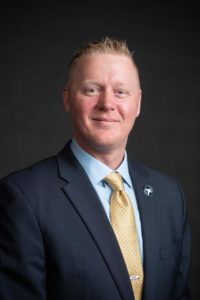
Kurtis Cunningham, a student veteran who interned with Sen. Rob Woodward (R-Larimer County) in 2019, was a designated van driver. “Ours was the fun van,” he said, with everyone comparing notes on the way home, careful not to give away too many strategic details. “Sen. Woodward kept us busy all the time; I was helping set up a database for tracking constituent emails, something that hadn’t been used before, and working on bills aimed at helping small business.”
Cunningham graduated from Fort Collins High School and knew Woodward from his previous work on Republican campaigns. With Democrats in control of all three branches, he saw that it was hard to build bipartisan support for Republican-sponsored bills, and many of Woodward’s died in committee on party-line votes. After completing the internship, Cunningham returned the next year to work as a legislative aide for Woodward, with interns of his own to guide.
Cunningham’s biggest takeaway from the experience was that, while he had thought he might leverage his military experience into a career in politics, he is now completing a master’s in public policy at CSU.
“I learned the difference between politics and governing,” he said. “Politics involves fighting with people on the floor (of the Senate). I’d rather help craft the policies that serve the people, working in local or municipal government. It’s a much better direction for me to go.”
Learning life skills
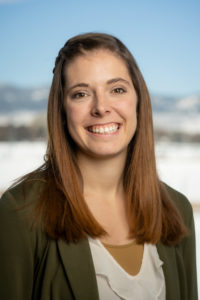
Alexandra Schweigert, now a young alumni and student engagement specialist for the CSU Division of University Advancement, was an intern in the last class taught by “the legend himself,” as she called Straayer, in 2016.
“This was experiential learning at its finest,” she recalled. “It gave me such a helpful foundation in understanding in how state funding for higher education is affected by other issues in the legislature that I see every day in my work. It was also phenomenal how much Professor knew about state government and how he was always willing to share it with us.”
Schweigert, originally from Monument, Colorado, didn’t have any strong political preferences when she started the internship, and was paired with Democratic Sen. Kerry Donovan, now the majority whip, whose district includes seven rural counties surrounding Eagle and Gunnison. Her committee assignments include agriculture and energy – two areas where Schweigert said she had no background growing up. Among her many duties, the senator had her sit in on meetings with constituents and lobbyists.
“Watching her use her communications skills to hear all the voices on the issues and build relationships with people on all sides was amazing,” Schweigert said. “Definitely a life skill that we all can use, in anything we do.”
She was involved in planning State Public Lands Day, designed to roll out the Rural Economic Development Initiative that provides grants to small agricultural producers. REDI had not passed the first time Donovan carried the bill, so Schweigert got to see the negotiations and collaboration needed to get a piece of legislation into law.
“There’s such a feeling of power when you walk into the Capitol,” she said, adding that she had considered becoming a lobbyist or working internationally for the U.S. State Department. “But it’s really all about the willingness to sit down and have a conversation with people who have ideas that are different than yours. Everyone is just trying to do what they think is right, and by
asking them to explain their values and listening respectfully, you can start to understand why they have those beliefs. Having an engaged dialogue across differences is becoming a lost art, I’m afraid.”
High regard
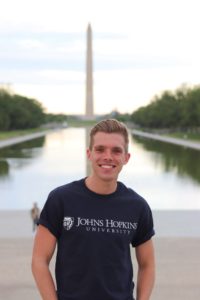
It’s hard to overestimate the reputation the CSU capitol internships have nationally. Anthony Laurita was in the same 2019 cohort as Cunningham, interning with Sen. Nancy Todd (D-Arapahoe County), who chairs the Education Committee. After graduating that year, he moved to Washington, D.C., and found that the first thing prospective employers – from an international development firm to small nonprofits – wanted to talk about was the internship.
This is thanks in part to semester-long internships at various agencies in the nation’s capital now offered by the Straayer Center through the Washington Center.
Even when Laurita applied to the Johns Hopkins School of Advanced International Studies to work on his master’s degree in international relations and energy policy, which has taken him to the school’s campus in Bologna, Italy, this semester, he found himself answering questions about his experience at the Capitol.
“I loved it and I would absolutely do it again,” Laurita said. “I consider myself extremely lucky to have worked with Sen. Todd; she’s known for working across the aisle and every senator wants to work with her on their own bills.”
He said the senator let him choose what he wanted to work on, and he picked the particularly contentious sex-education bill. Colorado is one of only a few states that do not require high school students to take a health class, but the bill – now law — requires that any health classes offered should include a complete picture of sexuality and healthy relationships. This includes information on consent as well as LGBTQ and trans issues.
“As a member of the queer community, this was an issue very near to me,” said Laurita, originally from West Virginia. “The senator would ask me to review draft versions of the bill to make sure the language was correct and respectful. I was honored to help.”
Todd also asked him to sit in on bipartisan deliberations with other senators and conversations with citizens opposed to the bill.
“I had to listen respectfully to views that I didn’t agree with, and after the meeting the senator would ask what I thought,” Laurita said. “I learned so much from watching her interact with everyone, and really felt that she valued my opinion.”
COVID-19 strikes again
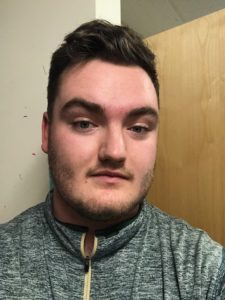
Hunter Slezak was in the last intern cohort before the pandemic hit in Spring 2020.
“I was so disappointed that we couldn’t go back after Spring Break,” he said. “I had been looking forward to the internship since freshman year.”
But his member, Rep. Jonathan Springer (D-Boulder County), had Slezak continue working remotely researching how to strengthen enforcement powers within Colorado’s existing red-flag gun law, even having him write a statement Springer delivered on the floor of the House.
“One of the co-sponsors read my talking points verbatim, so we decided there needed to be better coordination in the presentation,” he said.
Slezak, a fourth-year majoring in political science, quickly learned for every high-profile bill, like the red-flag law or school vaccination requirements – another project he worked on – there are tons that attract almost no attention, like how to dispose of Styrofoam.
That helped him realize that while a lot of politics focuses on the federal government, the most important work happens much closer to home, at the state and local level.
“More people have to realize that that’s where the work that affects them the most, that gets things done, happens,” he said.
And getting things like infrastructure and education done requires tax funding. Slezak, who intends to go to law school after he graduates in May, is doing his Honors Program thesis on The Taxpayer Bill of Rights, or TABOR, amendment to the Colorado Constitution, and is closely watching the fate of the related Gallagher Amendment on this year’s ballot.
“I want to work in family or environmental law here in Colorado,” he said. “I’ve spent all this time learning about how Colorado works through the internship, it would definitely be an advantage.”
Not only are all politics local, they are personal as well. They’re about how we treat each other in a civil society.
Cunningham’s master’s degree classes are entirely on campus this year, socially distanced in larger lecture halls. While he may not personally believe in the ramifications of wearing a mask against the coronavirus at all times, he said does it because he knows everyone would rather meet in person than study remotely.
“If it makes other people feel comfortable, I’ll do it so everyone can be here and have an enjoyable experience,” he said. “That’s more important than the views of just one person.”